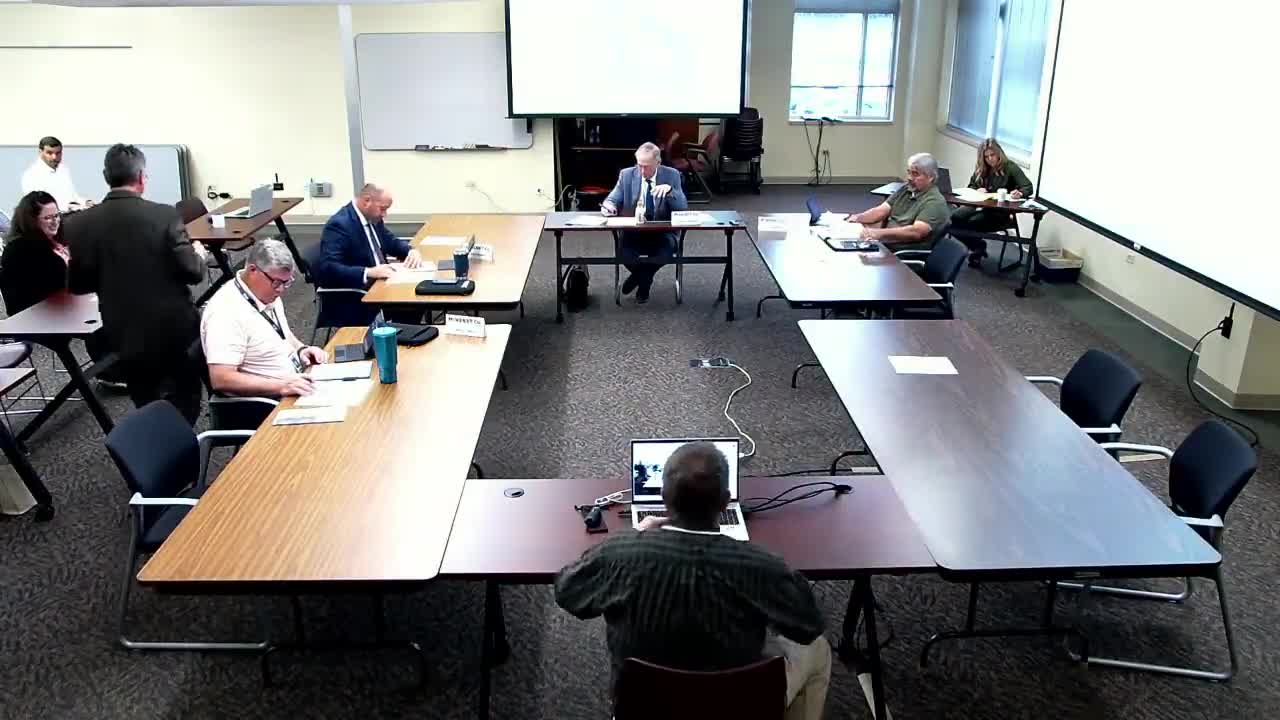McHenry County explores AI to speed deeds, court filings, evidence review and customer service
Get AI-powered insights, summaries, and transcripts
Subscribe
Summary
County staff briefed the Administrative Services Committee on exploratory artificial intelligence projects across multiple departments, describing pilot results, estimated costs and timelines while stressing human review and data protections.
McHenry County Administrative Services Committee members heard on Sept. 3 from county staff and vendors about exploratory artificial‑intelligence tools to speed property-record processing, e‑filing and document extraction for courts, automated transcription and summarization of evidence, procurement automation and a potential public-facing chatbot.
The discussion, led by Alicia Schuler, director of public affairs, and Adam O'Connor, director of procurement and special services, focused on pilot results and safeguards. "No PII in the AI. There's one thing that you take away from this presentation, no PII in the AI," Schuler said, summarizing a county policy the board previously adopted. She said the policy requires staff to "always check the AI's work" and to use only IT‑approved tools.
Why it matters: County staff described performance gains and estimated costs but did not request procurement approvals at the meeting. Committee members were asked to consider future budget and policy decisions as projects move from pilots to production.
What staff described - Assessments: Alex Benitez, assessments, described a new vendor contract that uses software to read deeds, extract legal descriptions and populate mapping fields. Benitez said the project cut processing lead time from about six weeks to roughly two weeks and reduced paper use and transcription errors. - Circuit clerk: David Kozlowski, circuit clerk, said the office implemented machine‑learning extraction with Tyler Technologies for a small set of common e‑file templates in July; five to six document types are live and the office is phasing in roughly 20 templates over time. Kozlowski said clerks review extracted data now and estimated it could take about a year to reach the confidence level needed to remove routine human review for those templates. "It's almost like a new employee that we're training," Kozlowski said of the system. - Evidence and prosecution: "We currently use AI primarily for transcription and translation," said George, identified as CISO/tech supervisor for the State's Attorney's Office, who said the county is trialing evidence.com to auto‑generate transcripts and short summaries for uploaded audio and video. He estimated the evidence system contract at about $137,000 annually and told the committee the transcripts can substantially reduce attorney time spent reviewing media evidence. - 911/ETSB and translation: Schuler said the Emergency Telephone System Board is vetting transcription and translation vendors that could translate 911 calls in real time for first‑responder use. - Procurement and county documents: O'Connor said procurement is evaluating RPA (robotic process automation) and generative tools to draft bids, RFPs and routine procurement documents; he estimated a potential annual savings of roughly 900 hours (about half an FTE) for procurement if suitable modules are implemented. Schuler estimated a text‑chatbot to serve county website content could cost about $33,000 and expand customer service hours from 42.5 to a potential 168 weekly service hours. She also described a vendor capability to search past resolutions and minutes and draft memos for board items (Schuler supplied an estimate of roughly 330 hours saved for board research, noting a prior misstatement during the presentation that she corrected on the record). - Finance/ERP: County staff noted potential automation in Microsoft Dynamics 365 (D365) for invoice data entry; the county processes roughly 22,000 invoices annually and staff said automated entry could save several minutes per invoice and reduce routine errors that trigger returns through workflow.
Safeguards and limits: Speakers repeatedly emphasized human review and limiting AI to controlled data. Schuler reiterated the county policy that AI should not be used to make "impactful decisions" in place of human judgment and that IT must vet tools for data safety. Tom (IT) described a two‑track technical approach: RPA tailored to controlled inputs that remains inside county infrastructure, and larger generative language models that may be evaluated later; he cautioned generative tools are evolving and can produce inconsistent results.
Costs and timelines: Staff gave tentative numbers and timelines: the evidence transcription system is expected to be in production within weeks to months; the circuit clerk's expansion to more templates is expected over about a year; procurement modules and other vendor features are under development and are not yet scheduled for county deployment. No procurement action or budget appropriation was taken at the Sept. 3 meeting.
Committee reaction and next steps: Committee members expressed interest in a cautious, phased approach emphasizing staff oversight, noting the county's slower pace could be an advantage in avoiding early missteps. Schuler said staff will continue vendor vetting and bring formal procurement requests and policy changes to the board as projects mature.
Ending: The presentation was informational; the committee took no formal purchasing action on Sept. 3 and asked staff to return with specific procurement requests, scope definitions and clear implementation safeguards before funds are committed.
